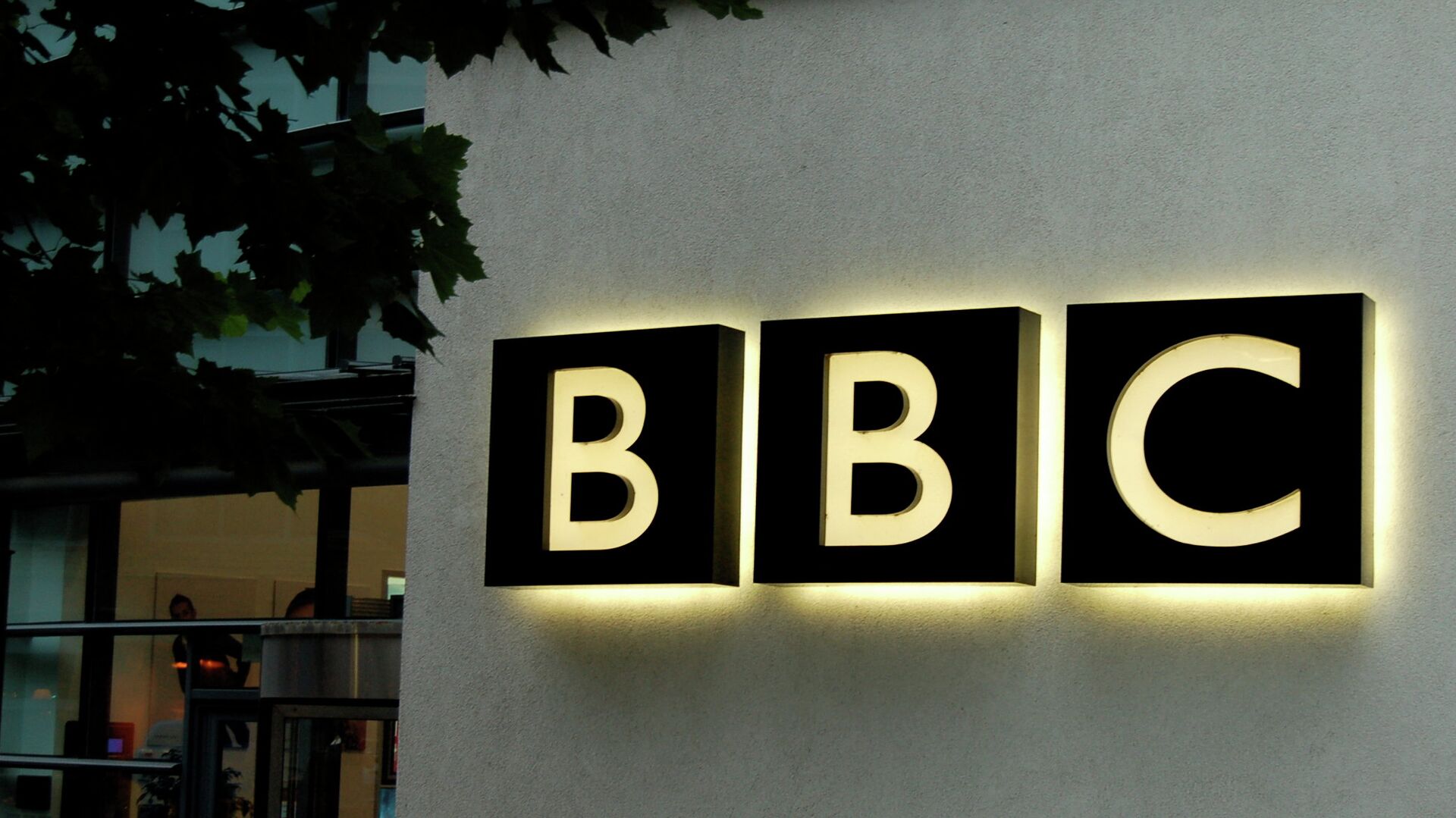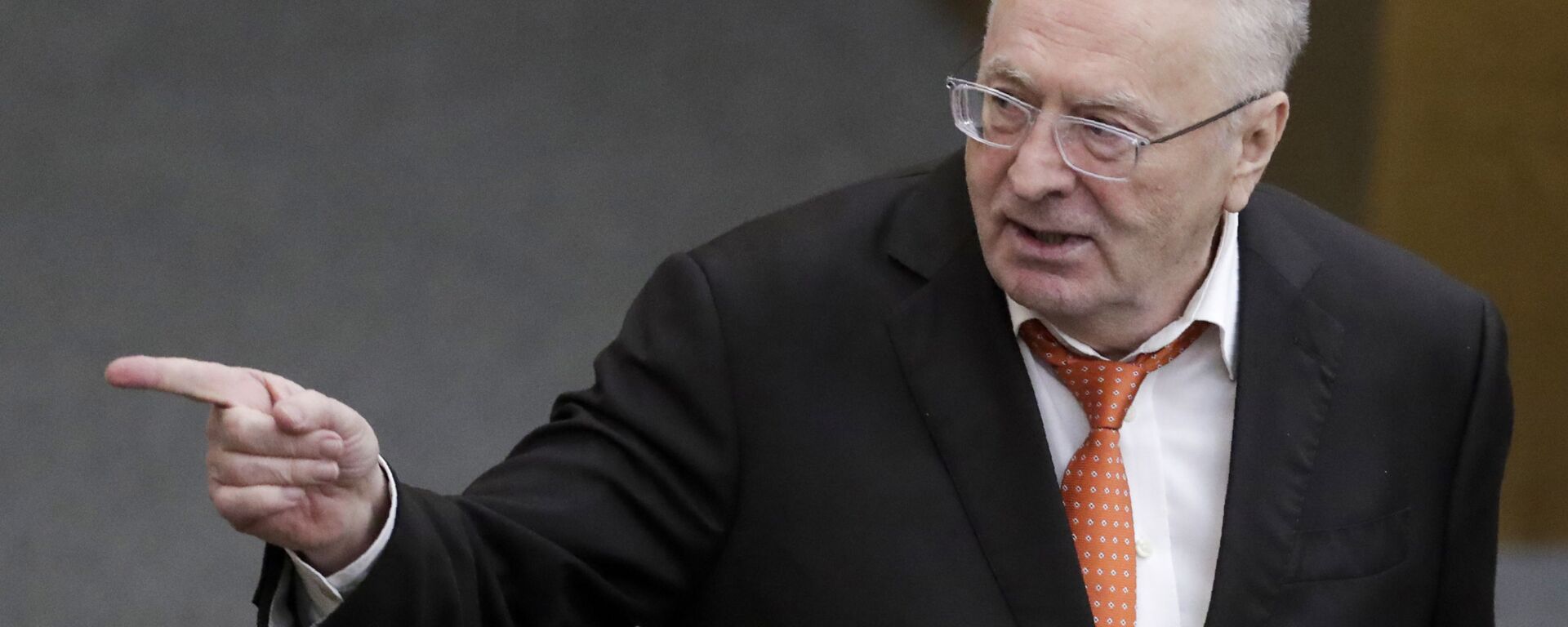https://sputnikglobe.com/20220409/stay-classy-bbc-broadcasters-obituary-for-late-russian-politician-zhirinovsky-sparks-scandal-1094626882.html
Stay Classy, BBC: Broadcaster’s Obituary for Late Russian Politician Zhirinovsky Sparks Scandal
Stay Classy, BBC: Broadcaster’s Obituary for Late Russian Politician Zhirinovsky Sparks Scandal
Sputnik International
Vladimir Zhirinovsky, the flamboyant Russian politician who founded the Soviet Union’s first non-communist political party in 1989, passed away on Wednesday at... 09.04.2022, Sputnik International
2022-04-09T19:16+0000
2022-04-09T19:16+0000
2022-04-10T12:50+0000
vladimir zhirinovsky
bbc
https://cdn1.img.sputnikglobe.com/img/102246/41/1022464160_0:116:2084:1288_1920x0_80_0_0_e9603d8b3a96146d6b8b1c04c4017d30.jpg
The Russian Embassy in the UK blasted the BBC on Saturday over its scandalously headlined report on the death of Russian Liberal Democratic Party leader Vladimir Zhirinovksy, which the broadcaster titled “Putin’s ultranationalist ally and clown, Vladimir Zhirinovsky, dies at 75.”“Labelling deceased foreign politicians is a new low for the BBC. Just the kind of journalism the so-called ‘free press’ proudly feeds to its loyal audience,” the Embassy tweeted, accompanying its post with a screengrab of BBC’s tweet and story headline.In its obit to Zhirinovsky, the BBC characterised his politics as a “brand of clownish ultranationalism” that “kept Russians shocked and entertained during more than 30 years of his political career”. The outlet also recalled a quote by political commentator Konstantin Eggert labelling the Jewish Russian politician “the Kremlin’s pocket nationalist and scare-monger”.“There is barely a mention of the man's best qualities: only derogatory or mocking comments about his 'absurd antics' and how he 'shocked and entertained' Russian people. I doubt whether the word 'clownish' would be used in obituaries for Western politicians, though I can think of two, at least, that justify that description,” Cashmore suggests.Tiberio Graziani, chairman of Vision & Global Trends – International Institute for Global Analyses, a Rome-based think tank specialising in geopolitics, agrees.Alex Krainer, political analyst and author of 'Grand Deception: The Truth About Bill Browder, the Magnitsky Act and Anti-Russian Sanctions', says the the BBC's approach is not to be unexpected, but takes comfort in his belief that more and more ordinary people in the West no longer believe the narrative being spun by the broadcaster and others like it.The disconnect between the Western MSM's narrative and the opinions of their public can often be found in the comments sections of news sites, the political analyst argues."For example, immediately after the massacre in Bucha, I looked at an article about it in one of the major Croation daily newspapers. The article faithfully reproduced the same version of events that was making the rounds in all Western media and blamed the Russian side. Of course, that was not a surprise, but I tend to be more interested in reader comments where they are still allowed and in this case an overwhelming majority of comments - I would say greater than 90%, disbelieved the news, in large part in very strong terms. The emotional reaction to the killings was in fact turned against the media, with accusations of spreading fake news and disinformation," Krainer notes.While many of the BBC’s Twitter followers had a good laugh at Zhirinovsky’s expense and agreed with the broadcaster's headline, others echoed the sentiments expressed the Russian Embassy and the political observers who spoke to Sputnik.“I agree. The BBC is better than this. Or should be better than this,” another person wrote. “All people deserve respect and dignity when they die. Being disrespectful regards them is not ok just because you disagreed with them in life. There is always a chance you misunderstood them,” another suggested.Zhirinovsky passed away on Wednesday and was buried at the Novodevichy Cemetery in Moscow on Saturday. The ceremony was attended by relatives and senior lawmakers and other officials. A farewell ceremony was held in Moscow on Friday. President Putin, Prime Minister Mikhail Mishustin, Foreign Minister Sergei Lavrov and others attended to pay their last respects.
https://sputnikglobe.com/20220406/russian-veteran-politician-vladimir-zhirinovsky-dies-aged-75-1094522259.html
Sputnik International
feedback@sputniknews.com
+74956456601
MIA „Rossiya Segodnya“
2022
News
en_EN
Sputnik International
feedback@sputniknews.com
+74956456601
MIA „Rossiya Segodnya“
Sputnik International
feedback@sputniknews.com
+74956456601
MIA „Rossiya Segodnya“
vladimir zhirinovsky, bbc
vladimir zhirinovsky, bbc
Stay Classy, BBC: Broadcaster’s Obituary for Late Russian Politician Zhirinovsky Sparks Scandal
19:16 GMT 09.04.2022 (Updated: 12:50 GMT 10.04.2022) Vladimir Zhirinovsky, the flamboyant Russian politician who founded the Soviet Union’s first non-communist political party in 1989, passed away on Wednesday at the age of 75. Zhirinovsky spent decades on the Russian political scene, captivating the public with jokes, theatrical threats and a library of controversial statements.
The Russian Embassy in the UK blasted the BBC on Saturday over its scandalously headlined report on the death of Russian Liberal Democratic Party leader Vladimir Zhirinovksy, which the broadcaster titled “Putin’s ultranationalist ally and clown, Vladimir Zhirinovsky, dies at 75.”
“Labelling deceased foreign politicians is a new low for the BBC. Just the kind of journalism the so-called ‘free press’ proudly feeds to its loyal audience,” the Embassy tweeted, accompanying its post with a screengrab of BBC’s tweet and story headline.
In its obit to Zhirinovsky, the BBC
characterised his politics as a “brand of clownish ultranationalism” that “kept Russians shocked and entertained during more than 30 years of his political career”. The outlet also recalled a quote by political commentator Konstantin Eggert labelling the Jewish Russian politician “the Kremlin’s pocket nationalist and scare-monger”.
“I don’t think this is, technically, an obituary, which are, as you know, death notices that usually include a brief summary of the person’s career highlights and a reminder of their accomplishments and personal strengths, without any consideration of their flaws or weaknesses. If it is, then it must be the most disrespectful obituary ever written,” Ellis Cashmore, sociologist and cultural critic, and visiting professor of sociology at Aston University in the UK says.
“There is barely a mention of the man's best qualities: only derogatory or mocking comments about his 'absurd antics' and how he 'shocked and entertained' Russian people. I doubt whether the word 'clownish' would be used in obituaries for Western politicians, though I can think of two, at least, that justify that description,” Cashmore suggests.
Tiberio Graziani, chairman of Vision & Global Trends – International Institute for Global Analyses, a Rome-based think tank specialising in geopolitics, agrees.
“BBC News's 'obituary' reserved for the recently deceased Russian Liberal Democratic Party leader Zhirinovsky constitutes the lowest level so far reached by a Western media [outlet]. This event is of particular concern, as it comes from one of the most followed and professional Western media outlets. In particular, the derision reserved for the Russian politician, when the latter is dead, is not acceptable…This is a bad chapter in Western journalism,” Graziani says.
Alex Krainer, political analyst and author of 'Grand Deception: The Truth About Bill Browder, the Magnitsky Act and Anti-Russian Sanctions', says the the BBC's approach is not to be unexpected, but takes comfort in his belief that more and more ordinary people in the West no longer believe the narrative being spun by the broadcaster and others like it.
"I think the comment from the BBC reflects the well-entrenched ethos of the Western mainstream media, which dictates that when it comes to Russia, hateful rhetoric is not only acceptable but even desirable and any restraint that would otherwise be dictated by normal human decency can be jettisoned overboard as commentators and journalists compete who'll take the toughest position on Russia. However, I believe that all this makes part of the carefully maintained facade of lies of the empire of lies and that a large segment of the population no longer believes it. Two decades of relentless, nuanced Russophobia, pushed by the media, has been counterproductive," Krainer says.
The disconnect between the Western MSM's narrative and the opinions of their public can often be found in the comments sections of news sites, the political analyst argues.
"For example, immediately after the
massacre in Bucha, I looked at an article about it in one of the major Croation daily newspapers. The article faithfully reproduced the same version of events that was making the rounds in all Western media and blamed the Russian side. Of course, that was not a surprise, but I tend to be more interested in reader comments where they are still allowed and in this case an overwhelming majority of comments - I would say greater than 90%, disbelieved the news, in large part in very strong terms. The emotional reaction to the killings was in fact turned against the media, with accusations of spreading fake news and disinformation," Krainer notes.
While many of the BBC’s Twitter followers had a good laugh at Zhirinovsky’s expense and agreed with the broadcaster's headline, others echoed the sentiments expressed the Russian Embassy and the political observers who spoke to Sputnik.
“I can’t help but feel there’s a slight bias in this report,” one user wrote. “As much as we all do not like the person in question, and the world possibly being better without said person, the use of such adjective shows an enormous lack of journalistic ethics and professionalism. No wonder more and more people are giving up on MSM such as BBC,” another added. “When did calling someone a clown become part of the news?” a third chimed in.
“I agree. The BBC is better than this. Or should be better than this,” another person wrote. “All people deserve respect and dignity when they die. Being disrespectful regards them is not ok just because you disagreed with them in life. There is always a chance you misunderstood them,” another suggested.
Zhirinovsky passed away on Wednesday and was buried at the Novodevichy Cemetery in Moscow on Saturday. The ceremony was attended by relatives and senior lawmakers and other officials. A farewell ceremony was held in Moscow on Friday. President Putin, Prime Minister Mikhail Mishustin, Foreign Minister Sergei Lavrov and others attended to pay their last respects.


